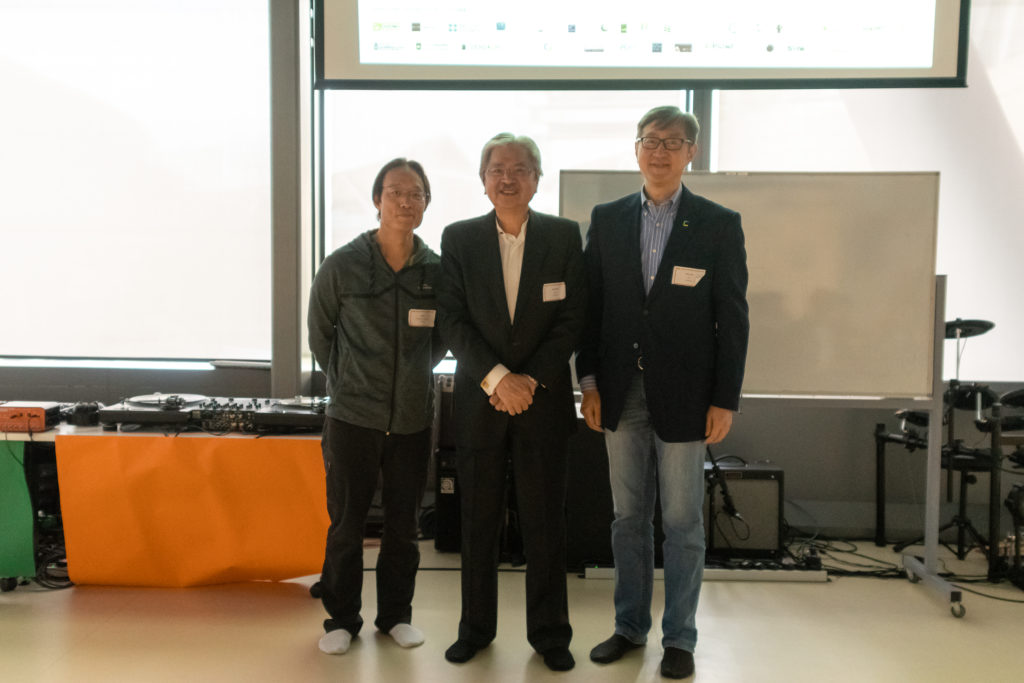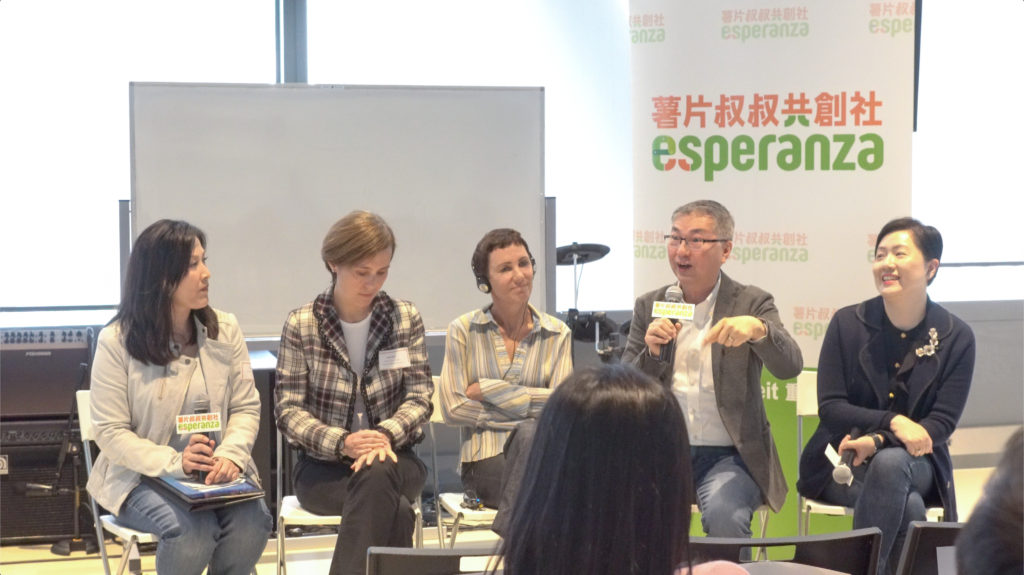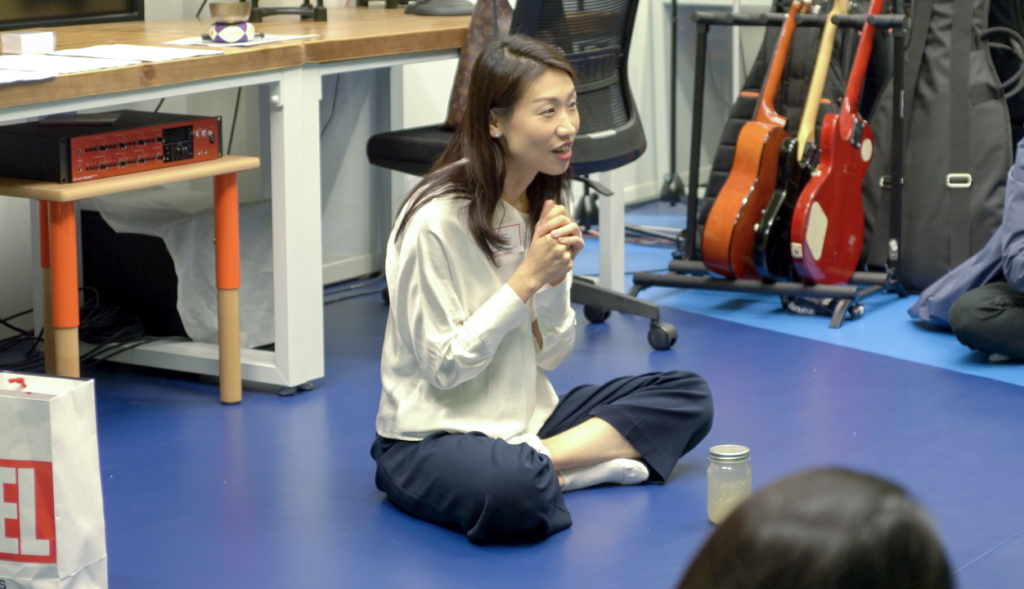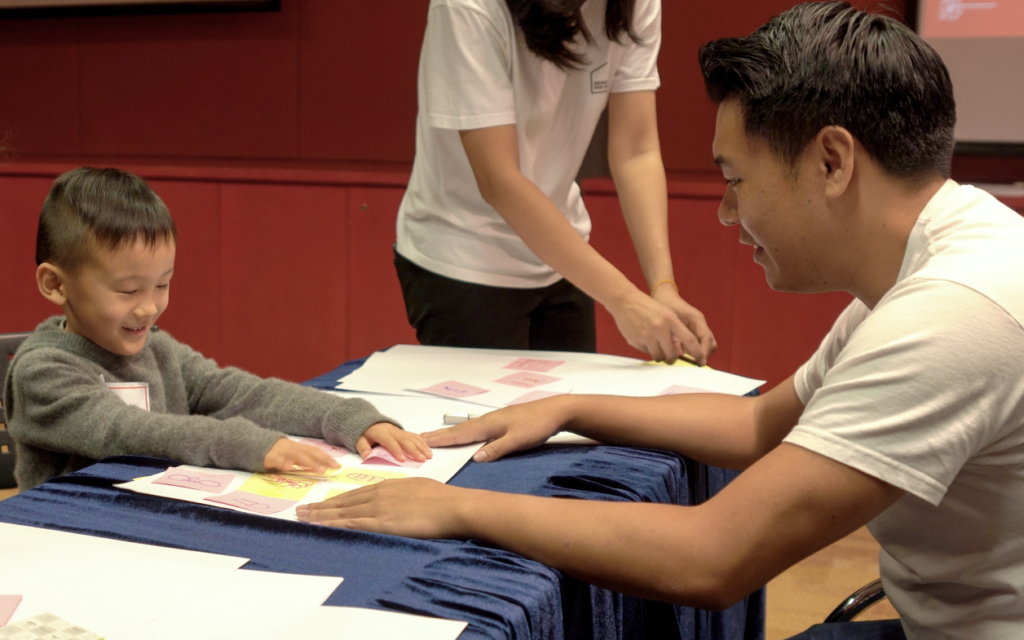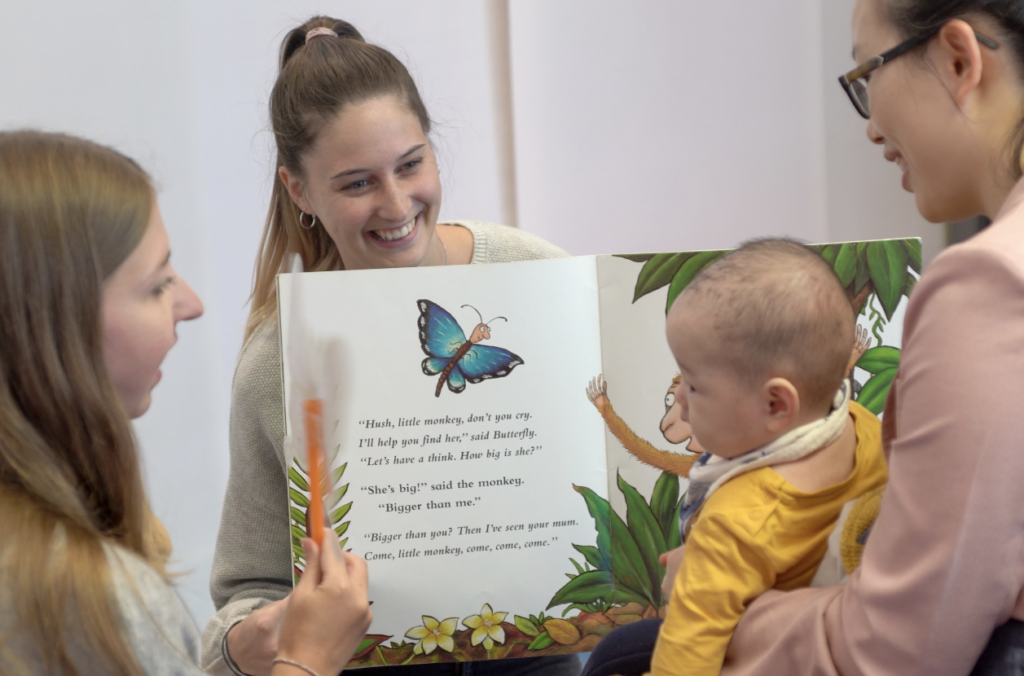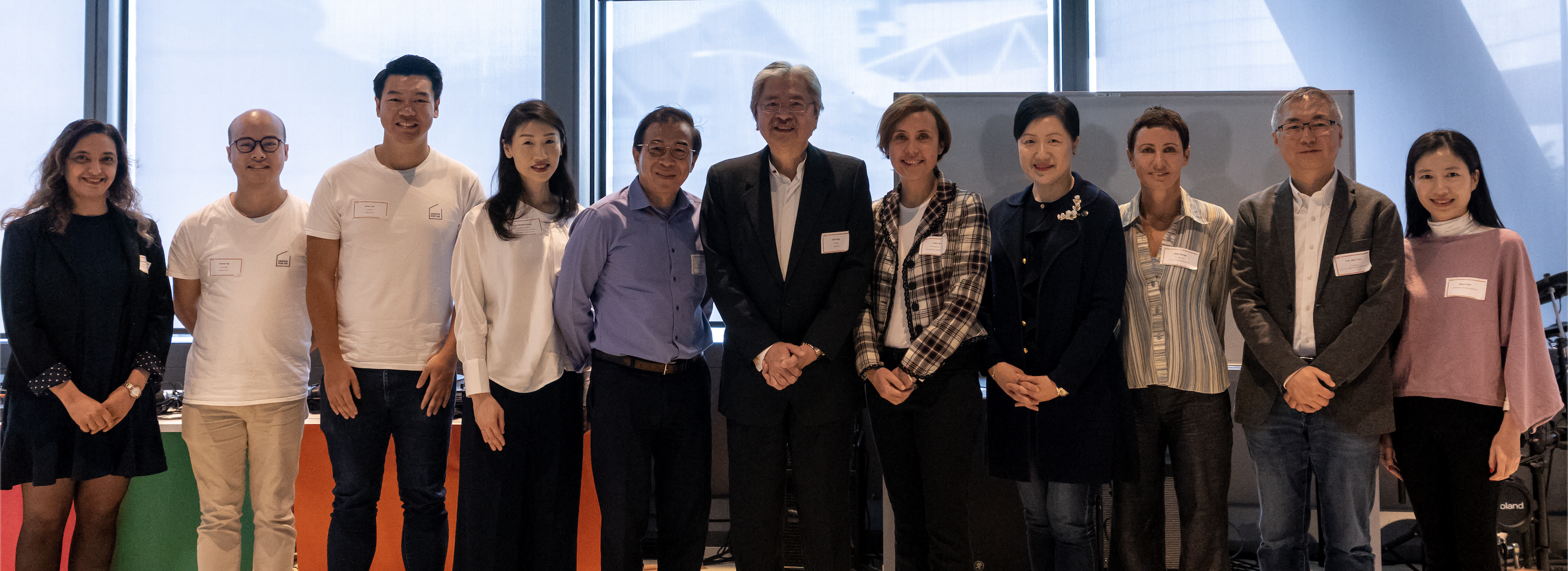
Mention early childhood education to any parent in Hong Kong and the response is usually one of anxiety. But at a Saturday morning panel on pre-school and primary school education in Hong Kong, the atmosphere was abuzz with hope and possibility.
Esperanza kicked off its 2020 Reimagine Education programme with a community meet-up on the very important subject of early childhood education. “A person’s character is determined at the age of three,’ John C Tsang quoted the Cantonese idiom at the early childhood education family day on 11 Jan 2020. Numerous researches have shown that the early years of a child is a period of incredible growth in all areas of a baby’s development. UNESCO underscored the fact that “Early childhood care and education (ECCE) is more than preparation for primary school. It aims at the holistic development of a child’s social, emotional, cognitive and physical needs in order to build a solid and broad foundation for lifelong learning and wellbeing. ECCE has the possibility to nurture caring, capable and responsible future citizens.”
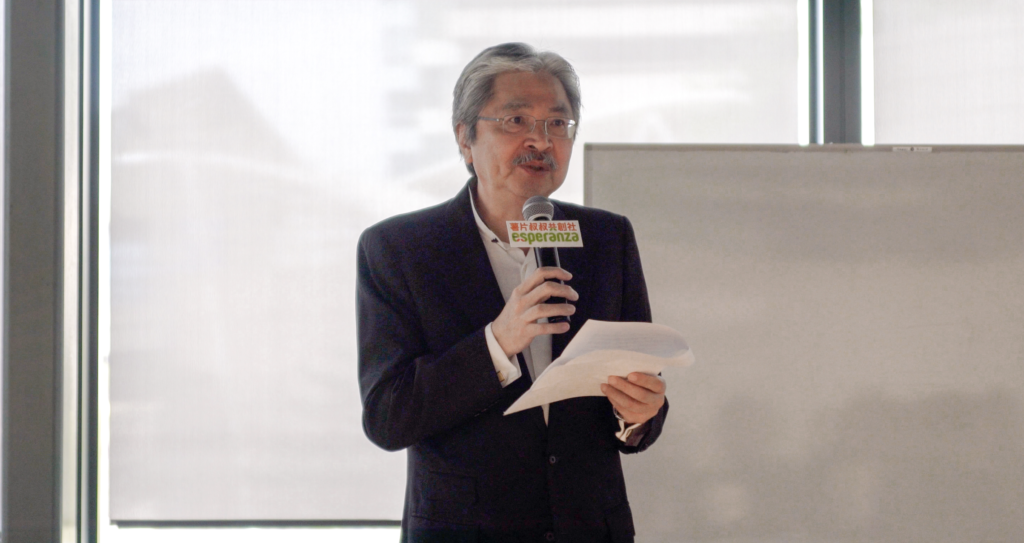
Dr LIU Kam Tim, a specialist in Child Neurology, shared with the audience the basics of early brain development. “Your brain is like a sponge in the early years – the older you get, the more effort is required in order to change,” Dr Liu said. Early childhood is a critical period to make the desirable changes because it would be the most responsive to experiences. He said that parenting is of paramount importance in the pruning process of child development, keeping the positive influences and eliminating the less desirable ones. “It is important for parents to provide sufficient protective factors (e.g., warm supportive parenting, coping skills, stable environment, positive experiences) to enable positive outcomes, while minimizing risk factors (adversities) that may hinder the development.” He stressed that when basic needs and emotional security are met, young children are motivated intrinsically by exploration, active involvement in play, and achieving mastery or success in a task.
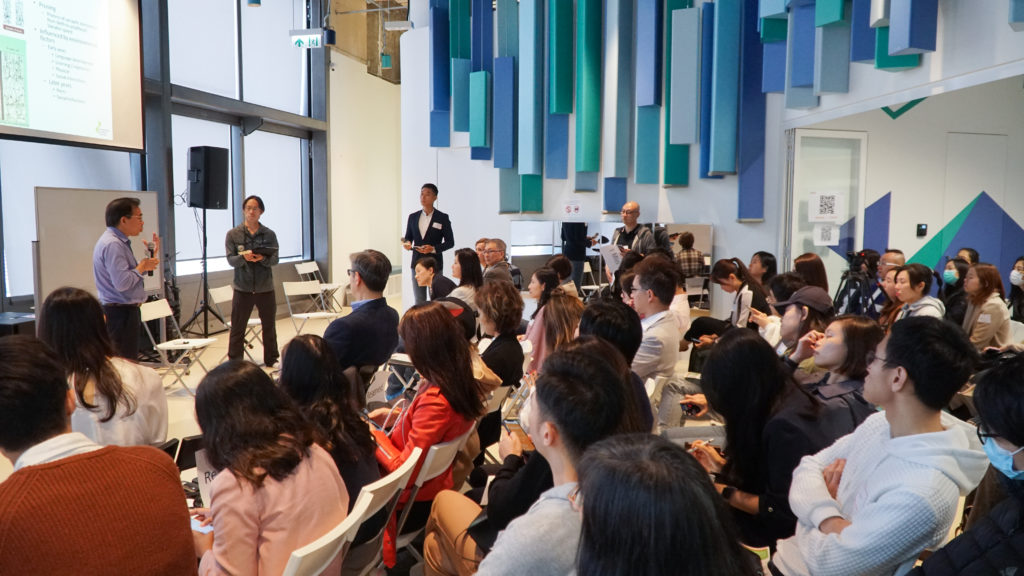
“Learning is what you do to yourself, education is what others do to you” echoed Yat Siu, Founder and CEO of Outblaze and the facilitator of Dr Liu’s talk.
Dr Liu explained that the brain develops various functions in a sequential manner. Usually, human will first develop the sensory pathway (vision, hearing). Next is language development, and then cognitive development. “The optimal degree of pruning should be based on the children’s interest and liking in a stimulating environment, which should not be too much, too hard or too early from the scientific angle.” Dr Liu said. It is also imperative to take a comprehensive and balanced approach to develop a child’s physical, emotional, cognitive, and social abilities.
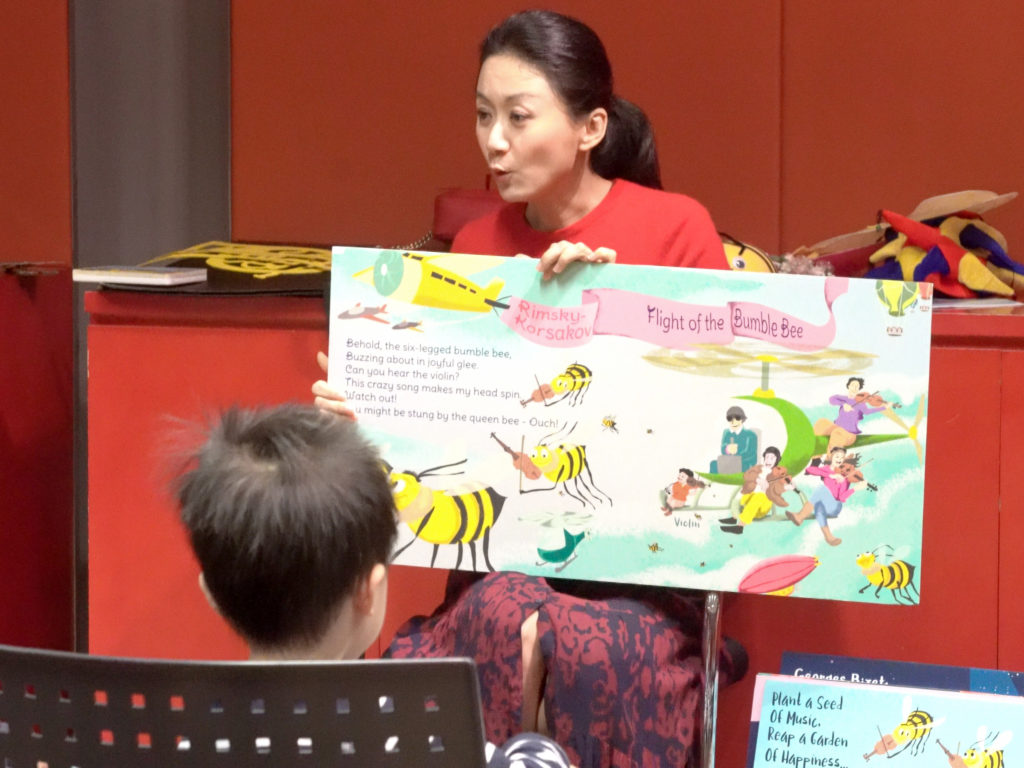
One of the current issues with early childhood development is whether technology can be a weapon for massive disruption. Dr Liu shared the WHO guidelines that children between 2 and 5 need to be limited to 60 minutes of screen time per day, and for the children under 2, they should spend no time with screens at all. WHO further encouraged parents to allow more time for children to join outdoor activities as it is good for their physical well-being. Dr Liu added that children’s language development may be hindered by the excessive use of mobile devices since they were not engaged in normal interaction to develop communication and language exchange skills. Dr Liu also gave his piece of advice to parents. “Sometimes when I see parents bringing their kids to me for behavioural problems, I can see some of these traits in the parents. As parents, we need to prepare for change and mould ourselves.“ Research on the science of learning has indeed flourished over the past decades, encouraging a shift from focusing on cognitive ability to social and emotional skills. From pre-school to primary and beyond, the notion of educating the whole child has taken centre stage. A panel of educators had an engaging discussion, demonstrating how the scientific theory of early childhood development is translated into their actual education practices. “The premise of education – or parenting, really – is to respect and admire the child,” said Professor Allan Yuen, President of Yew Chung College of Early Childhood Education. “If children feel that adults don’t trust them, then it’s difficult for any meaningful development to take place.” This focus on child-centred learning does not exist exclusively within Western education systems, either – an important point to note for parents puzzling over the best program for their child. As Professor Yuen explained, “The line between what’s local and what’s international is blurring.” Take, for example, Ying Wa Primary School, a Direct Subsidy School that has done away with exams for Primary 1 through 5 and organises outings almost every day for their students. “We need to give them challenging, hands-on activities and engaging tasks – that’s how their eyes will be opened,” explained principal Sylvia Chan. Instead of filling children’s schedules with classes to give them a head start, what’s vital are methods that draw out children’s intrinsic curiosity. “Maria Montessori believed that each child has a strong natural motivation for learning,” explained Karin Ann, Co-founder and Principal of International Montessori School. “Here, all of the child’s senses are engaged – when they learn about shapes, it’s not just about letting them see it – they can feel it, and know that triangles have three corners. They can use the sense of touch to build their muscle memory.” The Waldorf method, which shares some similarities with Montessori, also emphasizes child-led exploration. “We want to develop the emotional and cognitive skills that come through play,” added Cindy Cornish, Vice Principal of Forest House Waldorf School. “When they come into the classroom, they spend forty-five minutes of the morning just playing with the equipment – pinecones, seeds, blocks, cloths, structures that they can build. This develops their social interaction with each other. They deal with making plans, problem solving, following each other or taking on leadership roles.” It is precisely this autonomy that is crucial for development. “Children need to be able to do things themselves, to build up their concentration, to have the focus to learn,” Karin mentioned. “And naturally they’ll grow.” Panel facilitator and education PhD candidate Flora Chan underscored the importance of letting children learn from failure. “We forget that school is a space where students can make mistakes. Academic and subject knowledge alone will not make us resilient.” Waldorf education is also very much involved in nature. Echoing Dr Liu’s sequential development of the brain, Cindy said at Waldorf children only start learning letters, numbers when they are five to six years old. “It’s a very slow, gentle introduction – but then they catch up quickly.” Even the most well-intentioned parent is not immune to the pressures of academic achievement – and finding the balance between being overprotective and supportive can be difficult. Sylvia has a clear perspective on the role of exams: It is not easy to put examinations aside. The question is the purpose of the exams. “When we see exams as a tool for measuring the teachers’ efficiency or effectiveness, this is not the right way. If we actually want to know more about the development needs of the kids, we need to see which milestones they’ve achieved and adjust our methods to provide for them. Then there is the value of the exams.” “Our school is looking PHD students. “P is for parenting. Good role modelling is so important. Parents need to help their children, but not do everything for them. H is for good habits. Things like politeness, gratefulness, kindness towards others a healthy diet and a good lifestyle – starting from home and they need to be developed as early as possible. D stands for delight in learning.” Sylvia said. Despite the challenges that come with raising a child in a city as pragmatic and fast-paced as Hong Kong, Cindy said the increasing number of child-centred early education options means that there are alternatives to putting one’s child straight into the rat race. It is a time of more openness to programs that take a broader view of what children need to grow into healthy, confident young people – and everyone can play a role in the transformation. Perhaps Sylvia sums up the sentiment of the panel. “We are all co-creators of our generation, the current and the future ones. It’s not just parents, policymakers and educators who are shaping them. It’s culture and society, the way we view education, that creates our generation.” 